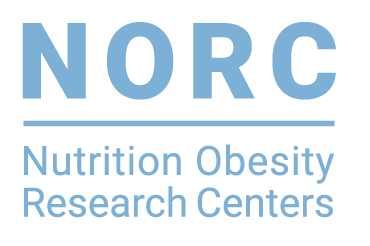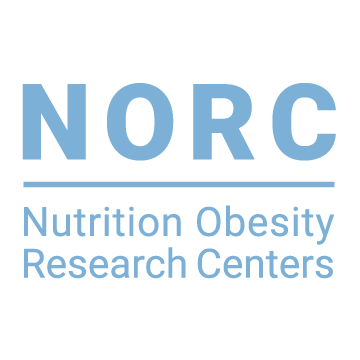University of Michigan
Erin Giles, PhD
Assistant Professor, Kinesiology
Dates of Funding: 2023-2024
Contact Information
eringile@umich.edu
Translating a novel glucose-guided eating paradigm to rodents – a P/F study
Nadejda Bozadjieva Kramer, PhD
Research Assistant Professor, Surgery
Dates of Funding: 2023-2024
Vertical sleeve gastrectomy improves hepatic steatosis and fibrosis by increasing intestinal FXR-FGF15/19 signaling
Mathia Colwell, PhD
Postdoc Fellow Environmental Health Sciences
Dates of Funding: 2023-2024
Contact Information
mathiac@umich.edu
Intergenerational Epigenetic biomarkers of Metabolic Diseases Using an in utero Arsenic Exposure Mouse Model
Ramiah Jacks, PhD
Postdoc Research Fellow Department of Pediatrics
Dates of Funding: 2023-2024
Contact Information
rdjacks@umich.edu
Regulation of adipose tissue T cells with rapid adipose tissue remodeling
Prashant Singh, MBBS
Assistant Professor, Internal Medicine GI and Hepatology
Dates of Funding: 2022-2023
A randomized controlled trial comparing clinical efficacy of Mediterranean diet and low FODMAP diet in patients with IBS
Andriy Myronovych, MD, PhD
Assistant Research Scientist, Surgery
Dates of Funding: 2022-2023
Hepatic Steatosis and Liver Regeneration after Vertical Sleeve Gastrectomy/Partial Hepatectomy in Diet Induced Obese Mice: The Role of FGF15
Brigid Gregg, MD
Assistant Professor, Pediatric Endocrinology
Dates of Funding: 2022-2023
Contact Information:
greggb@med.umich.edu
Changes in human milk nutrition as a complication of diabetes in pregnancy
Monica Dus, PhD
Assistant Professor of Molecular, Cellular and Developmental Biology, LSA
Dates of Funding: 2021-2022
Contact Information
mdus@umich.edu
Regulation of insulin biosynthesis and secretion by m6A mRNA Methylation
Melissa Elafros, MD, PhD
Instructor in Neurology, Medical School
Dates of Funding: 2021-2022
Contact Information
elafrome@med.umich.edu
The Flint Neuropathy Study
Cristina Saenz de Miera Patin, PhD
Research Fellow, Molecular and Integrative Physiology, Medical School
Dates of Funding: 2021-2022
Contact Information
csaenzde@umich.edu
Prenatal photoperiodic programming of the developing metabolic hypothalamus
Sonya Wolf-Fortune, PhD
Research Fellow, Molecular and Integrative Physiology, Medical School
Dates of Funding: 2021-2022
Contact Information
sonwolf@umich.edu
Dysregulation of keratinocyte/macrophage axis in obesity driven diabetic wounds
Eric Buras
Assistant Professor
Dates of Funding: 2020-2021
Contact Information
eburas@med.umich.edu
Thrombospondin-1 promotes fibro-adipogenic remodeling and contractile dysfunction of the diaphragm in obesity
Kendrin Sonneville
Assistant Professor
Dates of Funding: 2020-2021
Contact Information
kendrins@umich.edu • Phone: (734) 763-8789
Piloting the impact of an intuitive eating-based workplace wellness program
Erica C. Jansen
Research Assistant Professor
Dates of Funding: 2019-2020
Contact Information
janerica@umich.edu • Phone: (734) 647-9064
Circadian gene DNA methylation as a predictor of 10-year BMI gains among women
Factors prevalent in modern society, including poor dietary quality, high total energy intake, low physical activity and short sleep duration, are often blamed for the current global obesity epidemic. However, these factors neglect one critical aspect of modern society that could be important, which is the timing of these activities. A novel area of research examines epigenetic changes of genes involved in maintaining circadian rhythms as a means to understand the impact of circadian disruption on later health outcomes. Our objective is to evaluate whether DNA methylation of circadian genes (e.g. BMAL1, CLOCK, PER1, PER2) will be inversely associated with concurrent BMI and changes in BMI over a 10-year period in a sample of 144 Mexican women.
Alla Karnovsky
Research Associate Professor
Dates of Funding: 2019-2020
Contact Information
akarnovs@umich.edu • Phone: (734) 615-9314
Exploring diet/lipidome interactions to understand the development of adverse cardiometabolic phenotypes in the SWAN Cohort
Metabolomics has established itself as a powerful platform for identification of disease biomarkers and for providing insights into biochemical mechanisms of disease. The metabolome of an individual reflects the integrated response of their genetic and epigenetic programs interacting with chronic dietary intake. We hypothesize that determining the contribution of diet into observed metabolome should help improve the precision of the metabolomic profiles and allow better individualization of interventions to modify disease risk. In addition, the application of advanced bioinformatics tools can help identify changes in metabolic networks associated with disease risk and provide insights into the underlying biological processes.
Laura Saslow
Assistant Professor
Dates of Funding: 2019-2020
Contact Information
saslowl@umich.edu • Phone: (734) 764-7836
Piloting the impact of a carbohydrate-reduced eating pattern for non-alcoholic fatty liver
No medications are currently available for treatment of nonalcoholic fatty liver disease (NAFLD). NAFLD is caused by excessive fat in the liver and can progress to nonalcoholic steatohepatitis, liver transplantation, and increased mortality. We have preliminary data that insulin resistance is the strongest modifiable risk factor for developing NAFLD and individuals genetically predisposed to NAFLD by carrying PNPLA3 rs738409-GG show a multiplicatively increased risk of developing NAFLD when combined with insulin resistance. Dr. Saslow and others have shown that very low-carbohydrate diets (LCD) are effective at improving insulin resistance. We hypothesize that for adults with prediabetes or type 2 diabetes, an LCD would reduce NAFLD steatosis, fibrosis, and related metabolic disease measures in PNPLA3 rs738409-GG individuals the most.
Yewei Ji
Research Investigator
Dates of Funding: 2018-2019
Contact Information
ywji@umich.edu
Toll-like Receptors Act as Brakes on Adaptive β-cell Mass Expansion
Loss of pancreatic β-cells is central to development of both type-1 and type-2 diabetes. Restoration of β-cell mass via β-cell regeneration is a promising approach for treatment of diabetes. However, β-cell proliferative capacity declines after adolescence and remains extremely low during entire adulthood, posing a significant roadblock in regeneration therapy. The mechanism that inhibits β-cell replication in adult and obesity remains enigma. Toll-Like Receptors (TLRs) are membrane-spanning proteins that recognize microbes-derived structurally conserved molecules and play a key role in innate immune response. Serendipitously, we discovered that TLR2 and TLR4 ablation in diet-induced obese mice leads to massive β-cell proliferation and strikingly enlarged β-cell mass in a cell autonomous manner. In this application, we will test an overarching hypothesis that TLR2- and TLR4-mediated signaling pathways in β-cells block β-cell proliferation and regeneration.
Daniel Lawrence
Professor
Dates of Funding: 2018-2019
Contact Information
dlawrenc@umich.edu • Phone: (734) 763-7838
Metabolic insults, the neurovascular unit and Alzheimer’s
The pathophysiology underlying the cognitive impairments associated with Alzheimer’s disease (AD) is complex and represents one of the most difficult and pressing challenges facing modern neuroscience. This application will investigate the molecular mechanisms of AD evolution in a model system with significant systemic metabolic disturbances. Recently, a novel metabolic circuit was identified, regulated by vascular endothelial growth factor-B (VEGF-B) via VEGF receptor-1 and neuropilin 1 on endothelial cells. Blocking this pathway normalizes both glucose tolerance and insulin sensitivity in pre-diabetic and diabetic rodents. In this proposal, we will test the novel hypothesis that obesity and the prediabetic state accelerate AD pathology and cognitive dysfunction by up-regulating the signaling pathway controlled by VEGF-B in cerebrovascular ECs.
Anna Mathew
Assistant Professor
Dates of Funding: 2018-2019
Contact Information
amat@umich.edu • Phone: (734) 232-8228
Metabolic approach to Understanding the Role of Eicosanoids in Salt Sensitivity in CKD
Hypertension is a key predictor of progression in Chronic Kidney Disease (CKD), and sodium restriction in CKD patients reduces mortality and use of multiple antihypertensive agents. There is a need to mechanistically understand the metabolic consequences of high-salt intake and identify surrogate markers for salt intake and identity salt responders in CKD patients. Eicosanoids are associated with salt-sensitive hypertension in animal models. Therefore, we hypothesized that changes in eicosanoid profiles activated by salt intake increases blood pressure and volume in the susceptible host and that changes in eicosanoid metabolites may serve as a surrogate marker for volume status and salt sensitivity phenotype

Charles Evans, PhD
Research Assistant Professor
Dates of Funding: 2017-2018
Contact Information
chevans@umich.edu • Phone: (734) 232-8177
Differentiating instrinsic and exercise training-responsive contributions to exercise capacity, obesity and metabolic health
Maximal exercise capacity (VO2max) is an important predictor of metabolic health, including risk for obesity and type 2 diabetes. Exercise can increase VO2max, but it is largely determined by a genetically-driven intrinsic component. A key gap in knowledge is whether physical activity and exercise training promote good health via the same or different molecular mechanisms as those which are associated with high intrinsic exercise capacity. To study the connection between VO2max and metabolic health, our laboratory uses High Capacity and Low Capacity Runner Rats (developed by Drs. Steven Britton and Lauren Koch), which serve as an animal model of genetically-determined differential exercise capacity. We are using state-of-the-art metabolomics, transcriptomics and epigenomics methods to help answer this question through detailed study of tissues from trained and untrained animals with high and low intrinsic fitness. Our findings will help differentiate the molecular mediators of intrinsic and training-induced fitness, and in the long-term may aid in development of therapies to reduce risk or improve outcomes for individuals at high risk for metabolic disease.
Abhijit Naik, MD
Assistant Professor
Dates of Funding: 2017-2018
Contact Information
abhinaik@umich.edu • Phone: (734) 763-0990
Effect of moderate caloric restriction on glomerular growth after kidney transplantation
Weight gain after kidney transplantation is a common clinical problem affecting majority of kidney transplant recipients. Besides diabetes and hypertension, post transplant weight gain is associated with lower allograft survival, through yet poorly understood mechanisms. Accumulating evidence points to the role of glomerular hypertrophy, in accelerating podocyte detachment thereby leading to progressive glomerulosclerosis and eventual end stage kidney disease. Kidney transplants undergo glomerular hypertrophy early after transplantation, accompanied by loss of podocytes that is on average are about 6-fold higher than native controls. Previous simulation studies have demonstrated that changes in podocyte density after transplantation may limit allograft lifespan as well explain the strong donor age effect on allograft outcomes. The glomerular hypertrophy accompanying transplantation likely results from a combination of processes including the transition of the kidney from a 2 kidney state in the donor to a 1 kidney state in the recipient as well as post transplant weight gain. Studies of caloric restriction in experimental animals has shown that even small reductions in caloric intake can reduce glomerular enlargement, podocyte hypertrophic stress, proteinuria, glomerulosclerosis and kidney failure. With these concepts in mind we hypothesize that a modest caloric intake reduction in kidney transplant recipients will reduce post transplant glomerular hypertrophy. In this randomized pilot and feasibility trial of modest caloric intake reduction we will assess differences in markers of glomerular growth as well as quantitatively assess urinary podocyte detachment rates and markers of podocyte “hypertrophic stress” between the two arms.
Xin Tong, MD, PhD
Research Assistant Professor
Dates of Funding: 2017-2018
Contact Information
xintong@umich.edu • Phone: (734) 615-4971
Role and mechanisms of E4BP4 in high-fat diet-induced liver steatosis
With a prevalence of 10-30% in the general population, non-alcoholic liver steatosis (NAFLD) is the most common chronic liver disease. It is characterized by excessive fat accumulation in hepatocytes and is closely associated with diabetes and obesity. Nearly 10% of those patients develop non-alcoholic steatohepatitis, cirrhosis, and eventual liver failure. To date, liver transplant is the only option for the end-stage patients. In spite of a strong correlation between diets rich in fat, cholesterol, and fructose and NAFLD, molecular mechanisms by which high fat, high cholesterol, and high fructose (HFCF) diet promotes liver steatosis, inflammation and fibrosis remains poorly understood.
The overall objective of this proposal aims to investigate the role of b-ZIP transcription repressor E4 promoter-binding protein 4 (E4BP4) in driving diet-induced NAFLD in mice. Our preliminary data demonstrated loss of hepatic E4BP4 protects mice against high-fat diet-induced liver steatosis and E4BP4 promotes the expression of Cidea and Fsp27-β, two major lipid droplet binding proteins, in the liver in response to high-fat diet. We also discovered that chronic high-fat diet feeding leads to deSUMOylation of E4BP4 in the liver. Moreover, hepatocytes expressing a non-SUMOylatable E4BP4 show more lipid droplet formation than those of WT-E4BP4. Thus, we hypothesize that E4BP4 deSUMOylation promotes liver steatosis and its progression by increasing lipid biosynthesis and storage during diet-induced fatty liver disease. We will test the central hypothesis by pursuing two specific aims. Aim 1. Uncover molecular pathways of how hepatic E4BP4 promotes lipid accumulation via elevating Cidea and Fsp27-β expression in hepatocytes and the liver during diet-induced NAFLD. Aim 2. Investigate the function and regulation of deSUMOylation of hepatic E4BP4 during diet-induced NAFLD.
The completion of the proposed study will gain critical knowledge regarding the molecular pathways driven by E4BP4 to promote the onset and progression of NAFLD. The novel knowledge will shed light on novel preventive or therapeutic measures to treat NAFDL by targeting E4BP4 expression or SUMOylation.

Kanakadurga Singer, MD
Assistant Professor of Pediatrics
Dates of Funding: 2016-2017
Contact Information
ksinger@umich.edu • Phone: (734) 764-5175
Probing Sex Differences in Diet Induced Inflammation Through Profiling of Hematopoietic Progenitors

Marianna Sadagurski, PhD
Assistant Research Professor of Internal Medicine
Dates of Funding: 2016-2017
Contact Information
msadagur@umich.edu • Phone: (734) 615-0494
Growth Hormone Receptor Modulates Glucose Homeostasis in Nutrient-Sensing Leptin Receptor Expressing Neurons

Raymond Trievel, PhD
Associate Professor of Biological Chemistry
Dates of Funding: 2016-2017
Contact Information
rtrievel@umich.edu • Phone: (734) 647-0889
Characterization of the Molecular Functions of the Obesity-Linked Protein Nocturnin

